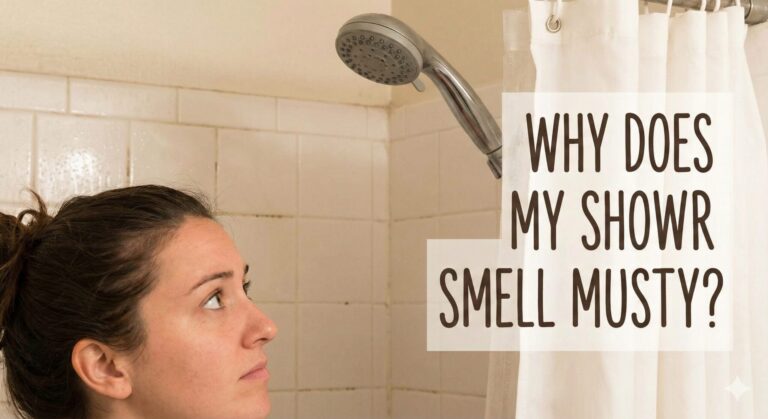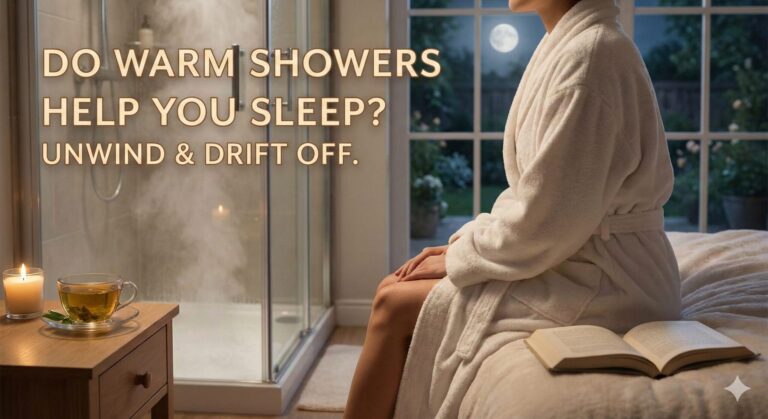To Shower Before Bed or Not? I Tested Hot vs. Cold Showers for a Month—Here’s What Happened.
The great shower debate. Are you a “rise and shine” morning rinser, or a “wash away the day” night bather? For most of my life, I was firmly in the morning camp, believing a shower was essential to wake me up. But as I started prioritizing sleep hygiene, I kept hearing the same advice: shower before bed. The problem? The advice was all over the place. Some swore by hot showers, others by a shocking blast of cold.
I decided to stop guessing and start experimenting. For one month, I became a dedicated night showerer to find the truth. I spent two weeks taking hot showers before bed and two weeks taking cold ones. I tracked my sleep, my mood, and how I felt the next day. The results were not what I expected, and they reveal a fascinating bit of science about how our bodies work.
This is more than just personal preference. The temperature and timing of your nightly rinse can genuinely impact the quality of your sleep. So, let’s settle the debate once and for all and figure out if a pre-bed shower is the sleep hack you’ve been missing.
The Big Debate: Why You Should (Maybe) Shower at Night
Before we get into the hot vs. cold showdown, let’s address the core question: is it even a good idea to shower at night? From my research and experience, there are three powerful arguments in the “pro” column.
- Getting Clean for the Sheets: This is the most obvious one, but it’s important. Throughout the day, your skin and hair accumulate sweat, oil, dirt, pollutants, and allergens like pollen and dust. Hopping into bed without washing that off means you’re essentially marinating in the day’s grime all night. For me, as a seasonal allergy sufferer, this was a game-changer. I noticed less congestion in the mornings almost immediately.
- The Psychological “Reset”: There’s a powerful mental component to a nightly shower. It acts as a clear boundary, a ritual that separates the stress of the workday from the relaxation of the evening. The act of “washing the day away” became a surprisingly effective way to mentally decompress and signal to my brain that it was time to wind down.
- The Sleep-Inducing Temperature Drop: This is the crucial scientific reason. Our body’s internal clock (circadian rhythm) is strongly influenced by temperature. To initiate sleep, our core body temperature needs to drop by a couple of degrees. A shower can cleverly manipulate this process. By warming your body up, you trigger a “rebound” effect where it rapidly cools down afterward, accelerating that necessary temperature drop and sending a powerful “time for sleep” signal to your brain.
Start With a Cleaner Foundation
If you’re going to make this a nightly ritual, using products that are gentle and effective is key. A good shower filter can remove chlorine and other impurities, which is better for your skin and hair in the long run.
AquaBliss High Output Revitalizing Shower Filter
I installed this before my experiment and the difference in my skin and hair was noticeable. It reduces harsh chemicals like chlorine, making the water feel softer. If you have sensitive skin or live in an area with hard water, this is a non-negotiable first step for a healthier shower routine.
Check Price on Amazon
Week 1 & 2: The Case for a *Hot* Shower Before Bed
For the first half of my experiment, I took a comfortably hot (not scalding) shower about 90 minutes before my target bedtime. The experience was immediately pleasant and calming. The science backs this up: the heat helps relax tense muscles and the steam can help clear nasal passages.
The primary sleep benefit, as mentioned, is **thermoregulation**. The hot water raises your surface temperature, and when you step out into the cooler bathroom air, your body goes into overdrive to cool down. This rapid cooling mimics the natural temperature drop that precedes sleep. I found that on these nights, I felt physically drowsy and ready for bed much more easily. The feeling was one of cozy, relaxed sleepiness.
Enhance the Calming Ritual
To really lean into the relaxing effects of a hot shower, I found that adding aromatherapy was incredibly effective. The combination of heat and calming scents creates a true spa-like experience.
Cleverfy Aromatherapy Shower Steamers – Lavender Set
These were a revelation. You just place one on the floor of your shower, and the hot water and steam release a strong, pure lavender scent. Lavender is widely studied for its calming properties. This little puck transformed my routine shower into a genuine relaxation ritual. Highly recommended.
Check Price on Amazon
NY Threads Luxurious Men’s & Women’s Shawl Robe
Stepping out of a hot shower and wrapping yourself in a plush, warm robe prolongs that cozy, relaxed feeling. It prevents you from getting chilled too quickly and is the perfect attire for lounging and reading for that final hour before bed. This one is incredibly soft and absorbent.
Check Price on Amazon
Week 3 & 4: The Surprising Case for a *Cold* Shower Before Bed
I was not looking forward to this part of the experiment. The thought of a cold shower at night seemed like pure insanity. The first one was a genuine shock to the system. But I stuck with it, and what I found was fascinatingly different.
Instead of making me feel cozy and sleepy, the cold shower made me feel alert, clear-headed, and calm. It sounds contradictory, but by forcing my body to deal with the cold shock, it seemed to zap away the day’s lingering anxiety. It was less about feeling “sleepy” and more about feeling “quiet.” My mind wasn’t racing when I got into bed.
While the science is less settled here, some studies suggest that cold exposure can lower cortisol (the stress hormone) over time and stimulate the vagus nerve, which helps regulate your nervous system. For me, it wasn’t a magic sleepiness pill, but it did seem to reduce my restlessness during the night.
Are There Downsides? Why Showering at Night Can Be Bad
A nightly shower isn’t a perfect solution for everyone. During my experiment, I ran into a few issues that are important to address. These are the reasons someone might say showering at night is “bad.”
- The Timing Trap: On a couple of nights, I showered too close to bedtime. Taking a very hot shower and then immediately trying to sleep was a disaster. My body was still too warm, and I tossed and turned. The 60-90 minute window is crucial to allow for the cool-down effect.
- The Wet Hair Problem: This is a big one. Going to bed with wet hair is not only uncomfortable, but it can also lead to hair breakage as you toss and turn on your pillow. A damp scalp in a warm environment is also a breeding ground for fungus or dandruff.
- Dry Skin Concerns: Hot water is very effective at stripping your skin of its natural, protective oils. If you’re prone to dry skin or conditions like eczema, a daily hot shower at night could make things worse without proper post-shower care.
Products to Combat the Downsides
Luckily, these problems are easily solved with the right tools. A super-absorbent hair towel and a quality body lotion are essential partners in a healthy night shower routine.
YoulerTex Microfiber Hair Towel Wrap (2 Pack)
This was the solution to the wet hair problem. It’s made of a special material that absorbs way more water than a standard bath towel, and much faster. I’d wrap my hair in this right out of the shower, and by the time I was ready for bed, my hair was just damp, not soaking wet. It drastically cuts down drying time.
Check Price on Amazon
CeraVe Moisturizing Cream for Face and Body
To combat dryness, I applied this immediately after patting my skin dry. It’s a dermatologist-recommended classic for a reason. It’s thick, non-greasy, and contains ceramides and hyaluronic acid to restore the skin’s barrier. It kept my skin hydrated and comfortable all month long.
Check Price on Amazon
My Verdict: The Perfect Pre-Sleep Shower Formula
After a month of dedicated testing, I have a clear winner. While the cold shower had some interesting calming effects, the **warm-to-hot shower was the undeniable champion for promoting sleepiness.**
The best formula for using a shower to improve sleep is:
- Temperature: Comfortably warm to hot, but not scalding. You want to warm your body without causing discomfort.
- Timing: Take it approximately 60 to 90 minutes before you plan to get into bed. This is the sweet spot that allows your body time to experience the crucial cool-down effect.
- Ambiance: Use dim lighting in your bathroom and add calming scents like lavender or chamomile to enhance the relaxation ritual.
- Post-Shower: Dry off thoroughly, especially your hair. Apply a good moisturizer. Get into comfy pajamas and spend the last hour relaxing—no bright screens!
This routine harnesses the science of thermoregulation and the psychology of a calming ritual to create the perfect on-ramp to a great night’s sleep.
Your Night Shower Questions, Answered!
Q: Why shower before bed?
A: Showering before bed cleanses your body of the day’s grime and allergens, promotes mental relaxation, and most importantly, can help you fall asleep faster. It does this by strategically raising and then lowering your core body temperature, which signals to your brain that it’s time for sleep.
Q: Why is it bad to shower at night?
A: It’s generally not bad, but it can be if done incorrectly. Taking a shower that is too hot, too close to bedtime can disrupt your body’s natural cooling process. Also, going to bed with very wet hair can be uncomfortable and potentially lead to hair damage or scalp issues.
Q: Why a hot shower before bed?
A: A hot (or warm) shower helps relax muscles and, more importantly, triggers a rapid cool-down effect when you get out. This drop in core body temperature is a powerful natural signal for your body to initiate sleep.
Q: Why a cold shower before bed?
A: While less common for promoting sleepiness, some people find a cold shower helps calm their mind and reduce restlessness. It can be a shock to the system that lowers stress hormones for some individuals, leading to a “quieter” state of mind for sleep.









